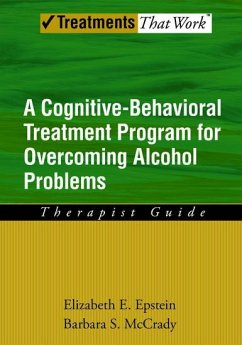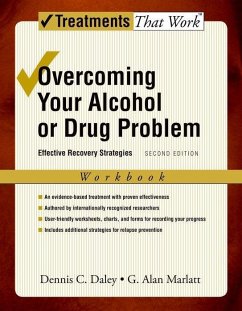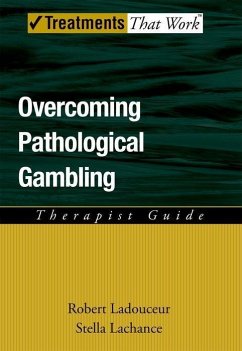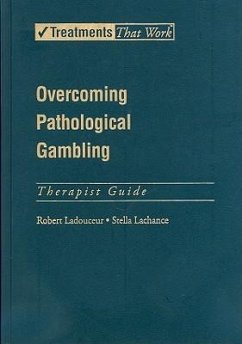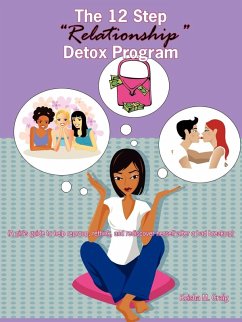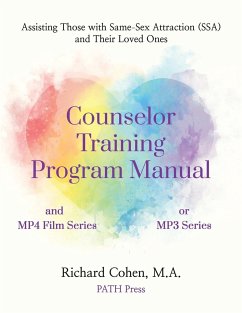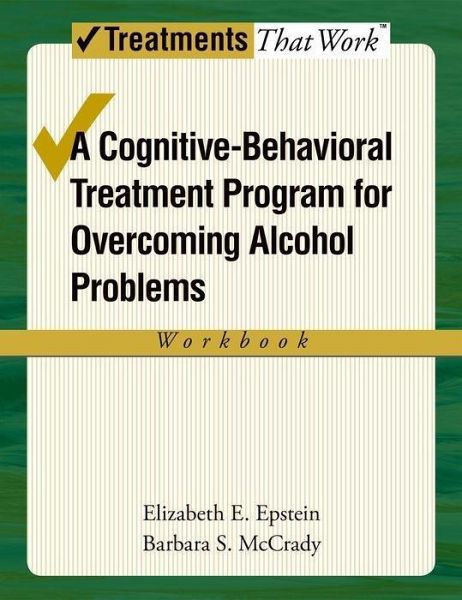
Cognitive-Behavioral Treatment Program for Overcoming Alcohol Problems (Workbook)
Versandkostenfrei!
Versandfertig in 1-2 Wochen
48,99 €
inkl. MwSt.

PAYBACK Punkte
24 °P sammeln!
It is well-known that alcohol abuse can have a devastating effect on a person's entire life, from work to social life to family relationships. However, men and women experience substance abuse problems in different ways. Most of the literature currently on the market does not make this distinction, and treats men's and women's problems as identical. This treatment program acknowledges the differences between the two, and presents gender-specific options for each step of the treatment. Publication of this manual represents an important new step in understanding and treating alcohol abuse. Cognitive-Behavioural Therapy (CBT) has been proven to be an extremely effective method of treatment for alcohol abuse. This treatment program uses new research by the authors that include a female-specific study as well as generalised treatment for individuals. Gender-specific topics addressed include assertiveness training, coping with other drinkers in one's social network, recognising anxiety or depression as triggers for alcohol abuse, and anger management.Designed to be used in conjunction with this therapy program, this Workbook contains monitoring forms and homework that will reinforce the skills learned in therapy.
Alcohol use can have negative effects on your day-to-day functioning, health, and relationships. If drinking is a problem in your life, this program can help you regain control. It has been developed with the benefit of each author's 25+ years of clinical experience in treating substance abusers and has been proven effective in helping individuals to achieve and maintain abstinence. Over the course of 12 weeks, you will meet with a qualified mental health or addictions professional to learn various skills and strategies for quitting drinking and staying sober. Together, you will come up with an abstinence plan that fits your needs. The program involves self-recording to help you identify your drinking patterns and triggers. You will plan for managing high-risk situations, including interactions with other drinkers in your social network. Urges to drink are to be expected and you will learn ways to deal with them. Focusing on the negative consequences of drinking will help motivate you to stop. As you experience the rewards of sobriety and find positive alternatives to drinking, remaining abstinent will become easier. You will also learn useful techniques for managing negative emotions and challenging alcohol-related thoughts. Other areas you may work on in this program include how to cope with anxiety and depression, build social support, be assertive, manage anger, and problem solve. Before ending treatment, you will need to make a plan for maintaining your gains and prepare for handling slips and relapses. It is important that you be an active participant in your treatment. You can use this workbook to follow along with the information presented by your therapist and to do exercises in session. Each chapter provides instructions and forms for compelling assignments. With your efforts in this program and committment to abstinence, you can overcome your alcohol problems.





